Continuing Education Classes University of Hartford
Viewing / All Programs
95 Results
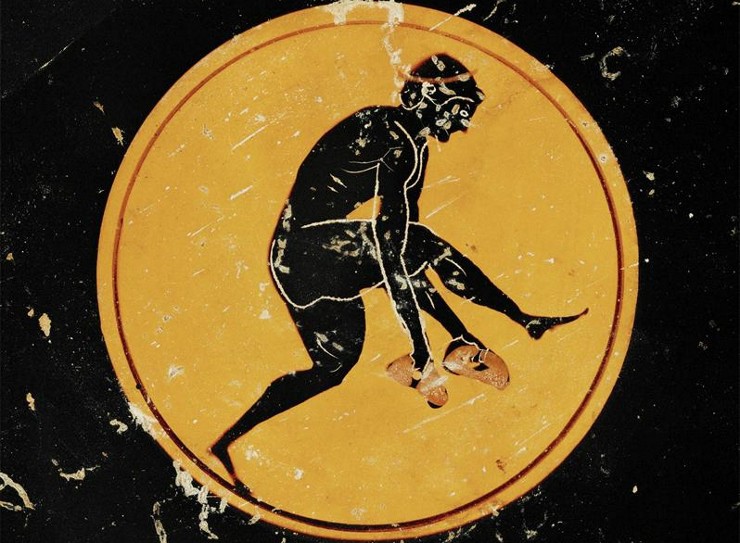
A sequence of six courses develops linguistic skills for reading literature in ancient Greek, housed in the Classical Studies department.
Learn More
The applied mathematics minor is designed to provide students with a strong background in the areas of mathematics that are critical for addressing both the theoretical and practical aspects of real-world problems that arise in a wide range of applications and disciplines.
Learn More
We are proud to offer a unique environment to learn the fascinating sounds and script of the Arabic language and the beauty of its literature and art and get acquainted with the warmth and generosity of Arab cultures. A formal minor in Arabic at Trinity is available and courses in Arabic language may count toward the Plan B Major within Language and Culture Studies, and a minor or major in the Middle East Studies Concentration within International Studies as well as African Studies and Global Studies majors.
Learn More
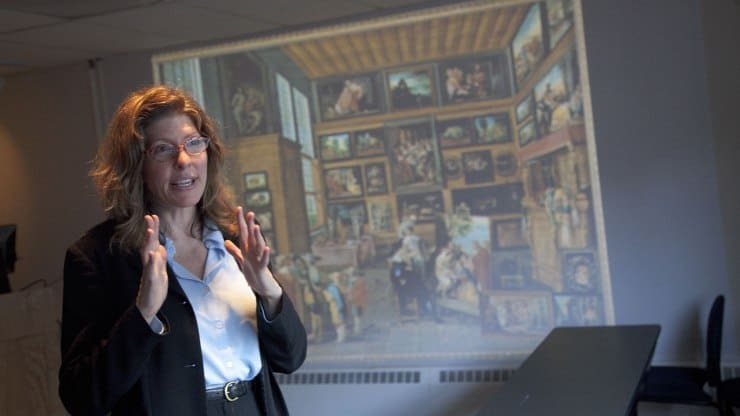
Trinity's Fine Arts Department takes great pride in its Art History Program. While small enough to offer students individual attention, it is also worldly enough to endow them with a breadth of knowledge essential to a career in art and architectural history and their related fields.
Learn More

A major in biochemistry can lead to a variety of careers besides research. These include the health professions, teaching, law, business, and management. A major in one of these fields is also an excellent preparation for a number of interdisciplinary areas including pharmacology, material science, nutrition and food chemistry, neuroscience, toxicology, forensic science, and art conservation.
Learn More
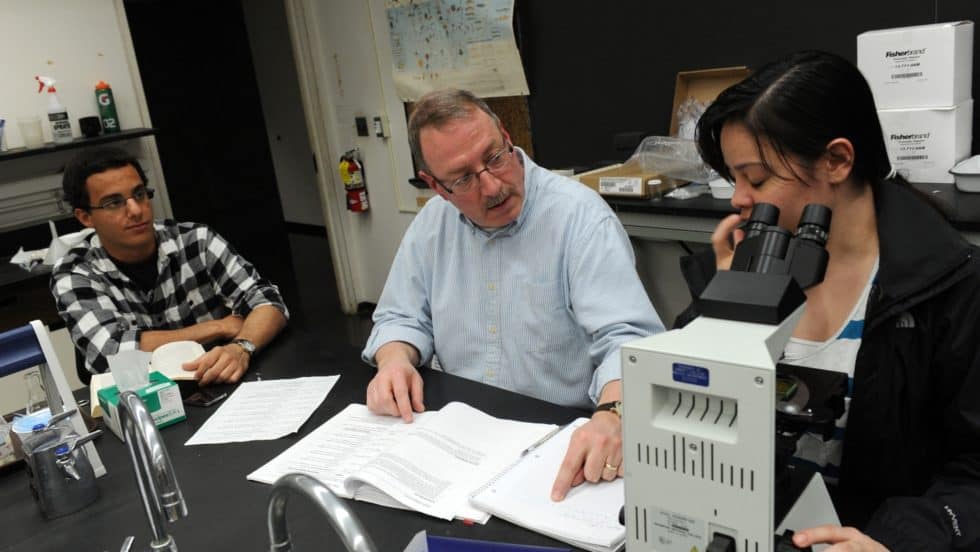
Biologists look at the marvels of the living natural world; they study LIFE. What we encounter in biology are the continuing consequences of events that began billions of years ago, yielding simple living forms capable of faithfully reproducing themselves. From this genesis evolved the many forms of life we recognize today.
Learn More
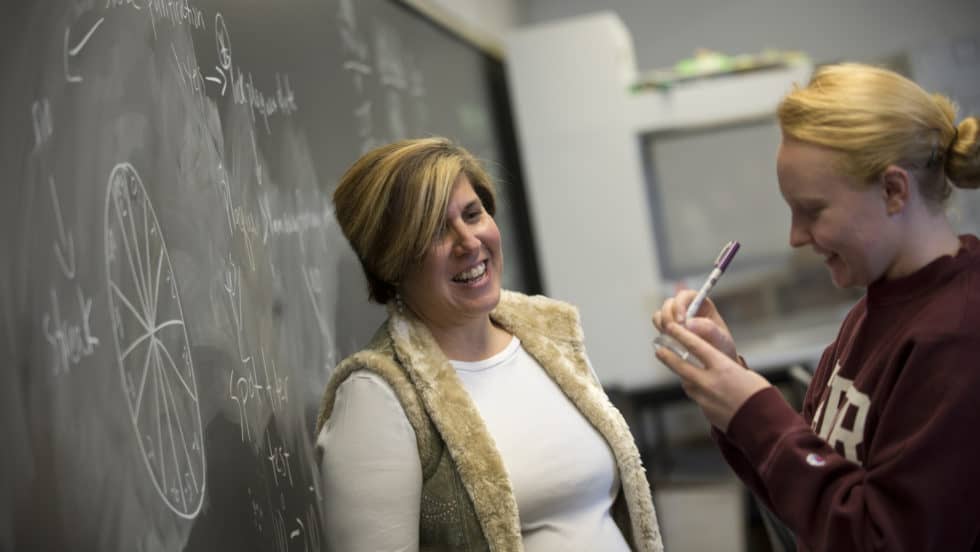
The Center for Academic Advising supplements the work of individual academic advisors to help address students' broad-ranging academic advising needs. Run by faculty, it is embedded in the Bantam Network and closely engaged with relevant campus offices: Student Life, Study Away, Career Development, Student Accessibility, and The Counseling Center.
Learn More
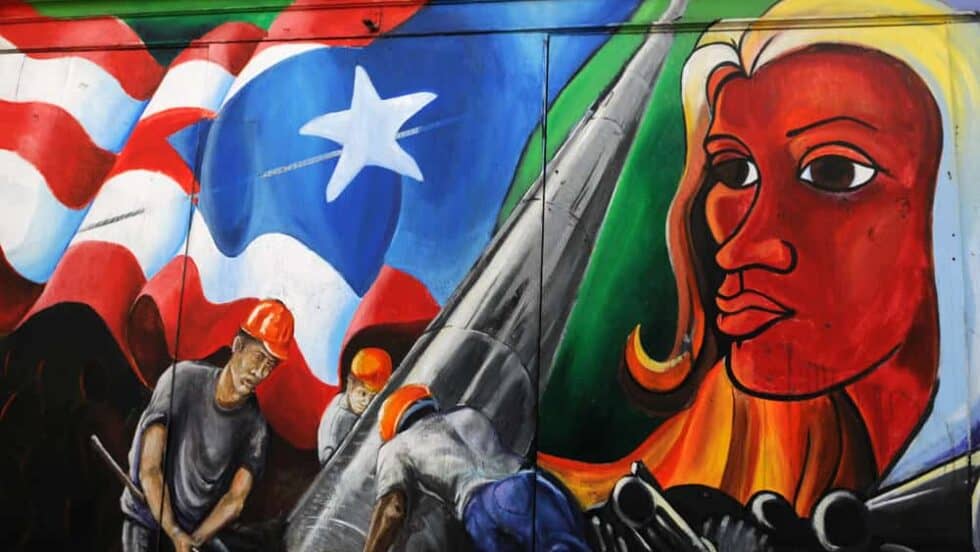
The Center for Caribbean Studies explores and celebrates the distinctive Caribbean character of the city of Hartford and the influence of Caribbean civilization on contemporary cultures around the world.
Learn More
The Center for Hartford Engagement and Research strengthens educational partnerships between Hartford's diverse communities and students, staff, and faculty at Trinity College. CHER coordinates the work of five core programs and assesses Trinity's engagement with the city.
Learn More
The Center for Teaching and Learning (CTL) works to promote effectiveness in teaching in all its dimensions. The CTL staff sees effectiveness in teaching as an essential component of a fully-realized academic career that also embraces research and/or creative productivity, service to students and the College, and membership in a co-operative, vibrant, and supportive intellectual community.
Learn More
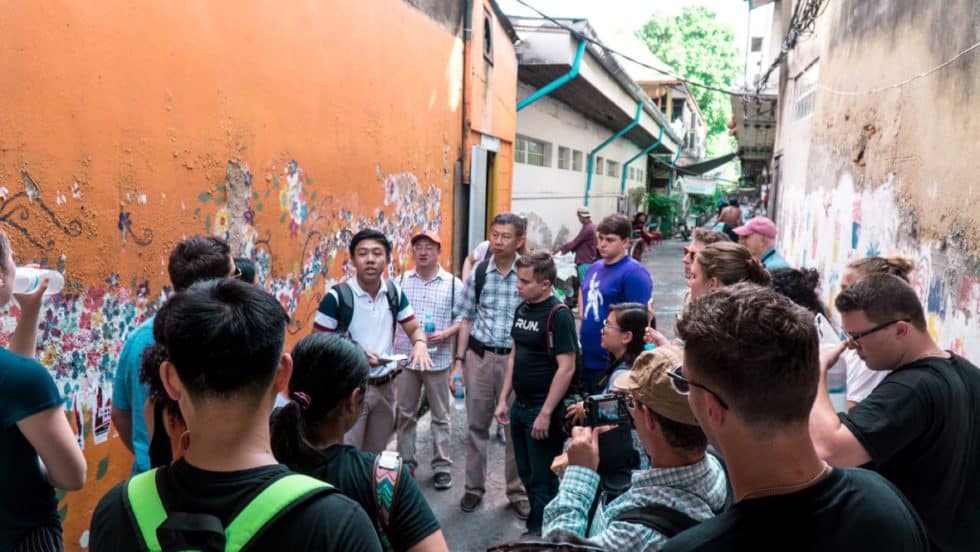
The Center for Urban and Global Studies (CUGS) is the first center of its kind at a top liberal arts college in the United States, and it offers curricular opportunities and research programs where students and faculty work together to better understand our new global society.
Learn More

The chemistry major at Trinity is structured to provide a balanced presentation of the five major areas of chemistry: analytical, biological, inorganic, organic, and physical.
Learn More
Students choosing a Plan B major in Language and Culture Studies may elect Chinese as either their primary or secondary language. We also offer a Language Concentration ("Minor") in Chinese which gives you the option to develop linguistic skills and gain an appreciation of Chinese culture.
Learn More
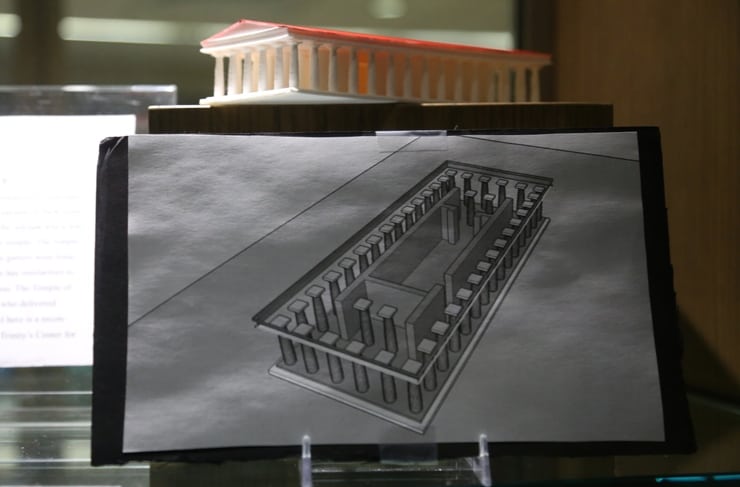
Students in the classical antiquity minor acquire a general knowledge of the achievements of ancient Greece and Rome, which traditionally have constituted, along with the Judeo-Christian tradition, the chief ingredients of Western civilization. Homer, Plato, Cicero, and Caesar remain lively figures, and the classical tradition still pervades our poetry and prose, our philosophy and law, our ideas of history, our conceptions of education, and our art and architecture.
Learn More
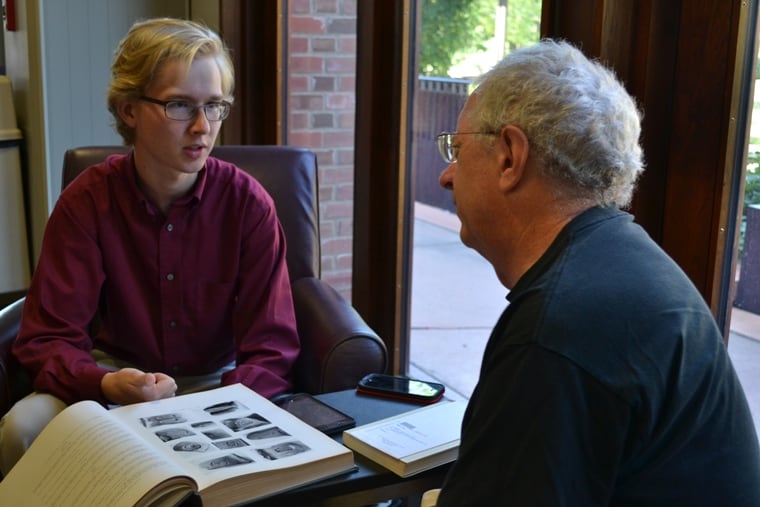
Take a mixture of courses that focus on the ancient Mediterranean world and others that focus on the modern reception of "classical antiquity" through literature, performance, visual art, film, historiography, philosophy, political theory and practice, and/or Romance languages.
Learn More
Computer science is one of the most exciting and fastest-growing fields today. We are dedicated to providing an education based on the development of the fundamental logic and reasoning skills and computational problem-solving skills that will prepare you for a lifetime of learning.
Learn More
Electron microscopes (or EMs) are powerful instruments used in medicine, industry, and academic settings around the world to study the fine structure and properties of living and non-living materials. The Electron Microscopy Facility at Trinity offers undergraduates a rare opportunity for exposure to nanotechnology.
Learn More
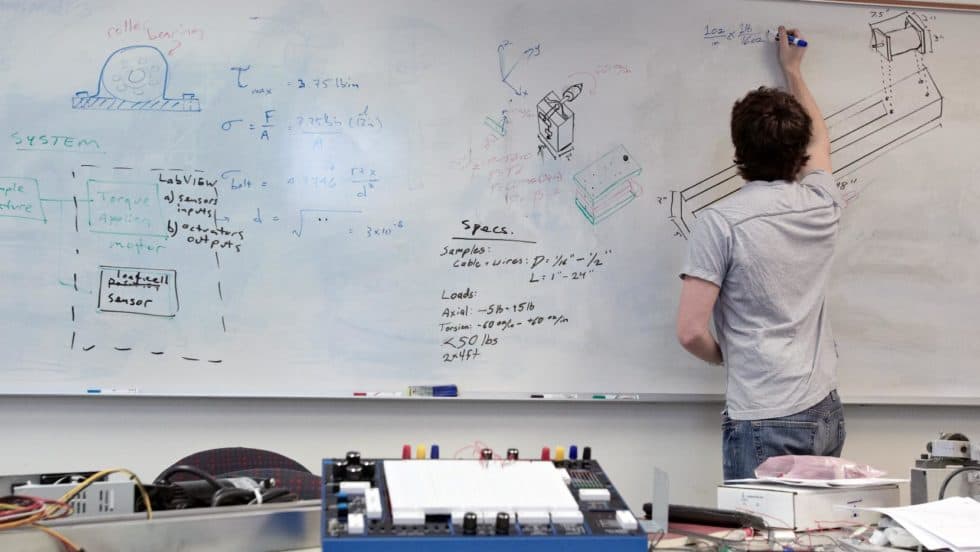
For more than a century, Trinity has offered a rigorous program in engineering within the liberal arts setting. Trinity is one of just a few highly selective liberal arts colleges that offers two engineering degree paths: a Bachelor of Science degree, accredited by the Engineering Accreditation Commission of ABET, and a Bachelor of Arts in Engineering Science degree. Trinity engineering majors develop solid backgrounds in mathematics, physical science, and engineering science and design; as well as substantial study in the arts, humanities, and social sciences. Concentrations are available in Electrical, Mechanical, Biomedical and Computer Engineering.
Learn More
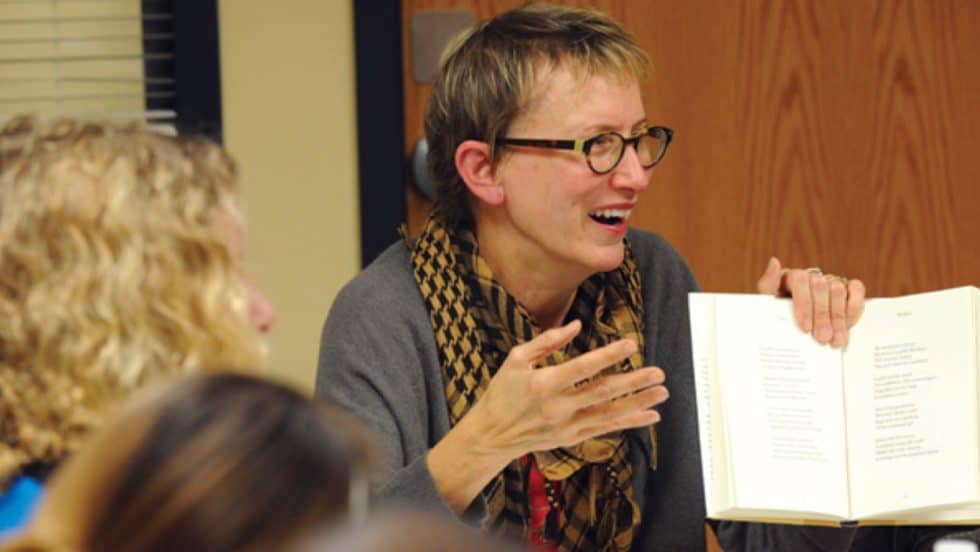
In the English Department at Trinity College, faculty and students collaborate closely together as they explore a wide range of literary forms, genres, and media from an equally wide range of periods and cultures. Our award-winning faculty members are actively publishing scholars and artists as well as dedicated teachers and mentors.
Learn More
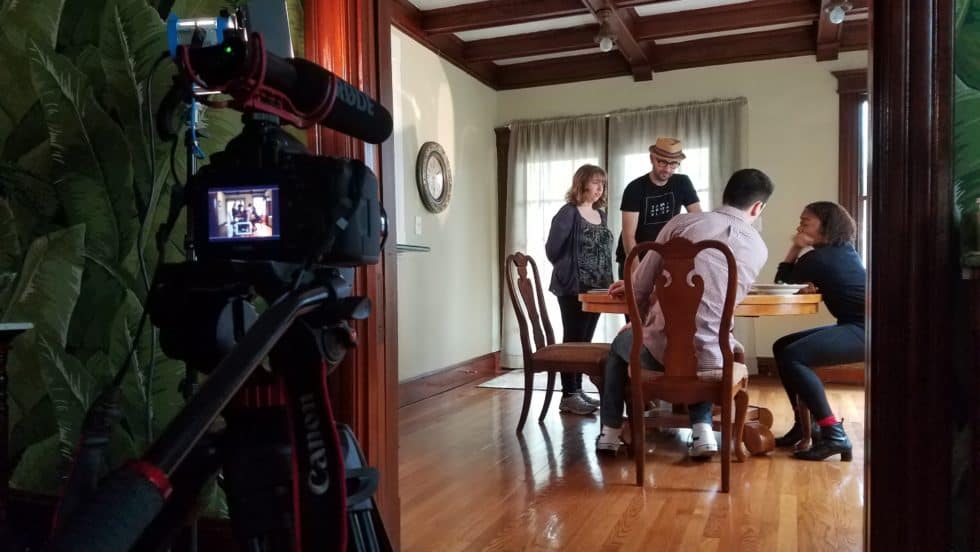
The interdisciplinary program in Film Studies at Trinity draws on courses in film studies and production taught in sixteen of the College's departments and programs.
Learn More
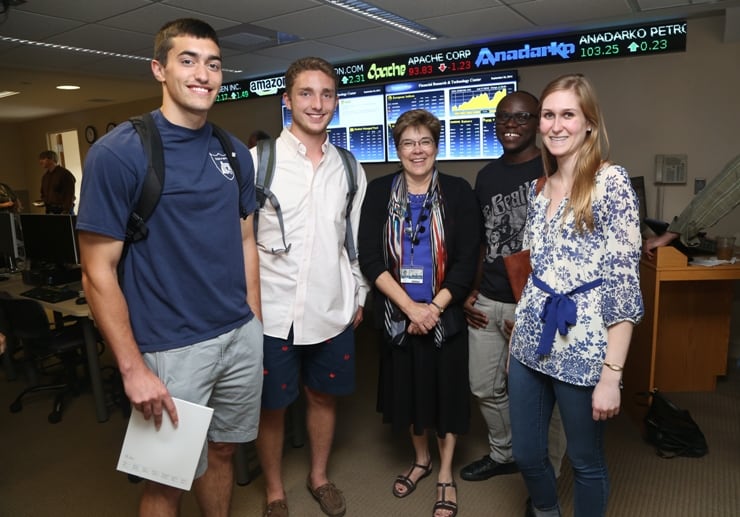
Located in the 24-hour zone of the library, the center hosts 11 Bloomberg Professional workstations, the industry leader in providing real-time and historical data for business and finance news, analytical tools, and research. Having access to Bloomberg terminals gives students exposure to the same information platform used in business and financial industries worldwide, and can provide valued and practical learning experience.
Learn More
Courses in French language, literature, Francophone cultures, and film are offered by an enthusiastic faculty that encourages intellectual challenge, critical thinking, and social interaction in a cultural context.
Learn More
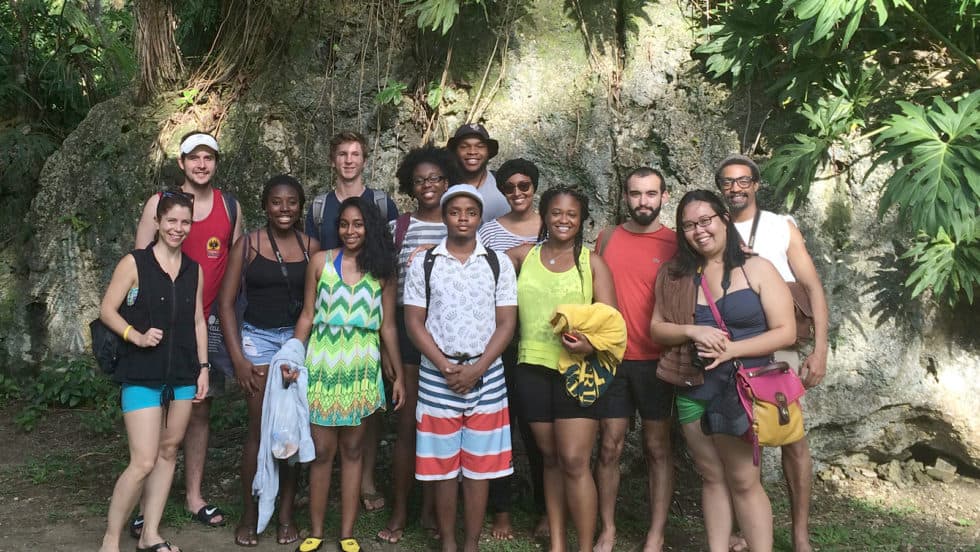
Engage with the Caribbean community in Hartford, Connecticut and learn as global citizens through a semester abroad, in Trinidad. Students develop the intellectual framework and openness to work with global, transnational communities from a variety of provenances. This three-semester program emphasizes the interconnection of the sciences and the humanities, and the essentialness of bringing a humanistic perspective to science-dominant fields.
Learn More
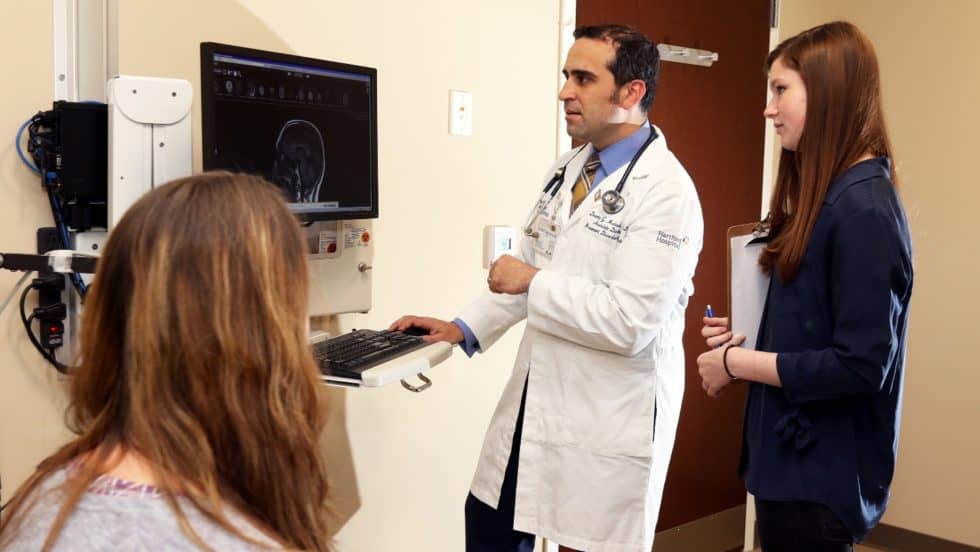
The Health Fellows Program is an innovative academic program offering students exceptional opportunities to participate in a clinical research project. In addition to their regular coursework, students work 30 hours per week with clinical-care physicians or other research-active health care providers in one-on-one relationships at area medical centers.
Learn More
Modern Hebrew has its roots in the Bible and illuminates the richness and understanding of modern and ancient civilizations throughout the generations. Students who take courses in Hebrew benefit from small and intimate classes that emphasize both interactive and individualized approaches to language education. Students choosing a Plan B major in language and culture studies may elect Modern Hebrew as their secondary language. We also offer a minor in Modern Hebrew. Hebrew courses are required for students who wish to major in Jewish Studies. Credit in Hebrew courses also counts toward a Major or Minor in Middle Eastern Studies.
Learn More
If you think you might be interested in using the Spanish language to understand the broader, historically generated realities of Spain and Latin America as well as the emerging global realities of our time, we invite you to join us in the Hispanic Studies Program at Trinity College.
Learn More

Historians examine the past to form a meaningful image of events previously hidden, partially understood, or deliberately misinterpreted. History is based on a foundation of documents, novels, maps, archival materials, memoirs, numbers, artifacts, and factual data combined with scholarly writings and analysis. It is a field of study that is part social science, part poetry, and always a humane quest for understanding.
Learn More
The Humanities Gateway Program engages outstanding students in a comprehensive examination of European cultures through integrated interdisciplinary study of their histories, literatures, and religious and philosophical ideas, from classical antiquity to the present.
Learn More
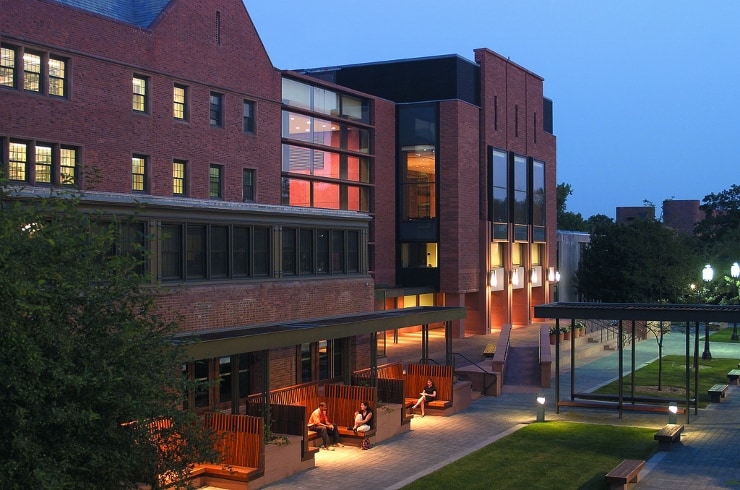
The Information Services division is housed in the Raether LITC and includes the Library and Information Technology Services, and the Watkinson rare book collection.
Learn More
InterArts is an innovative, multidisciplinary, one-year program designed for a select group of outstanding students who share a deep interest in the arts.
Learn More
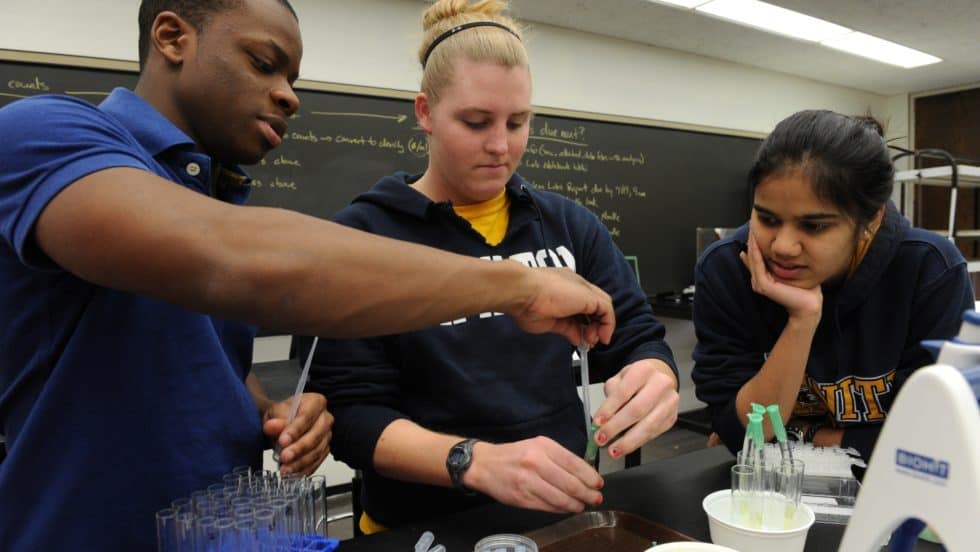
The Interdisciplinary Science Center (ISC) actively promotes the sciences on campus and throughout the greater Hartford community and beyond through a broad collection of projects, programs, and services.
Learn More
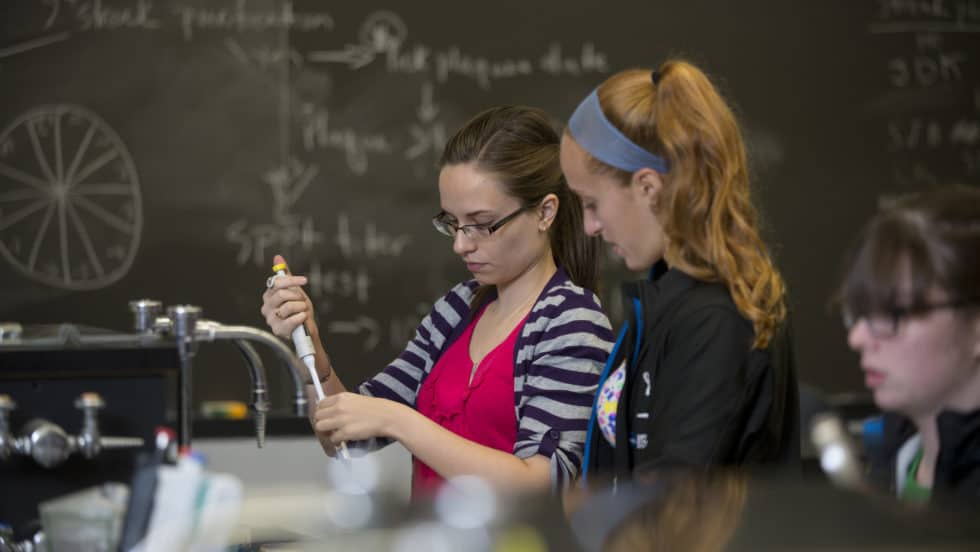
The Interdisciplinary Science Program (ISP) is an innovative academic program designed to broaden and enrich the study of science and mathematics by exploring the links between the scientific disciplines and their connection with the external world. Designed by faculty in biology, chemistry, computer science, engineering, environmental science, mathematics, neuroscience, and physics, the core of the ISP consists of a seminar and a research apprenticeship, both in the first year, and a course investigating the interactions of science and society, usually taken in the sophomore year.
Learn More
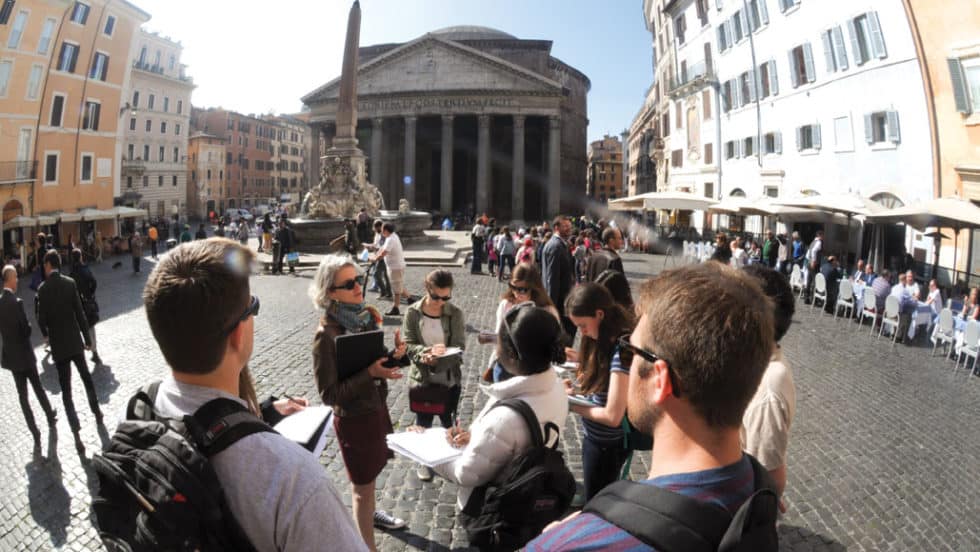
The Italian Studies Program at Trinity College offers a variety of courses in Italian and in English about the language, culture, and civilization of Italy. Students majoring in Italian are encouraged to attend of one the programs at the Trinity College Rome Campus.
Learn More
The Japanese Program at Trinity College offers rigorous language training for those willing to make the commitment. The program also offers a Japanese literature course in English, which surveys traditional genres as well as a variety of contemporary topics.
Learn More
Jewish studies is a multi-disciplinary, college-wide investigation of Jewish civilization in its many historical and geographical manifestations. The scope of the Jewish studies curriculum covers Jewish civilization from its ancient Near Eastern origins through its contemporary history and culture in Israel and the diaspora communities around the world. It is a secular, academic program with diverse, cross-cultural emphases.
Learn More
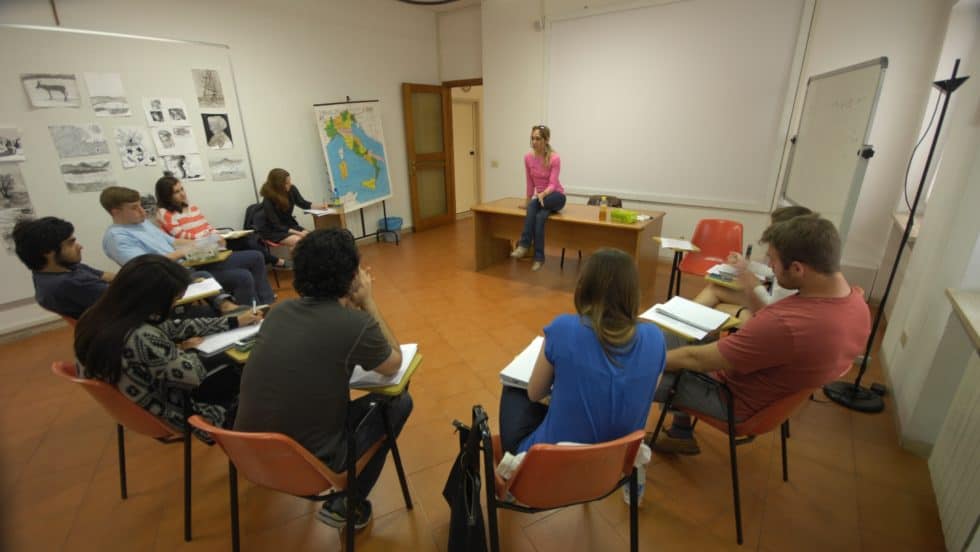
Learning a foreign language opens doors to other cultures. In addition to the personal challenge of mastering a new language, multiple-language proficiency allows you to pursue rewarding careers in international affairs, law, business, foreign service, education, and a host of other exciting fields. Trinity has majors in seven principal modern languages - Chinese, French, German, Italian, Japanese, Russian, and Spanish - as well as studies in Arabic and Hebrew.
Learn More
A sequence of six courses develops linguistic skills for reading literature in Latin.
Learn More
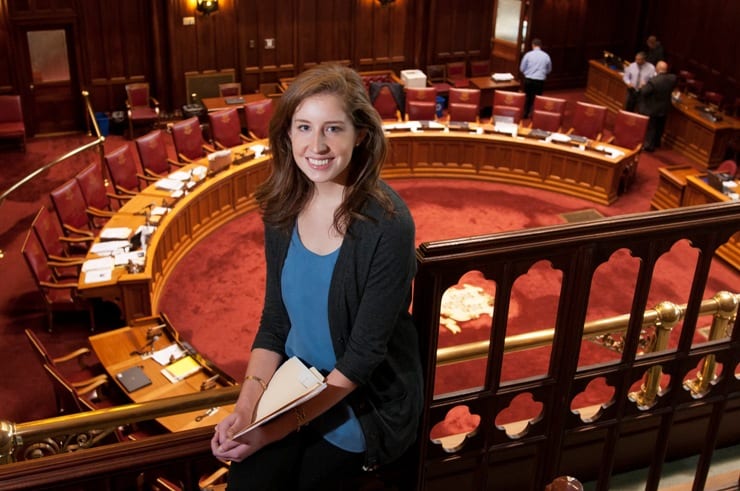
Our nationally respected Legislative Internship program was devised especially for students who want to observe politics and government firsthand. When it comes to political science, there is no better place to be than in a city, and, even more specifically, within a capital city.
Learn More
The Leonard E. Greenberg Center for the Study of Religion in Public Life advances knowledge and understanding of the varied roles that religious movements, institutions, and ideas play in the contemporary world.
Learn More
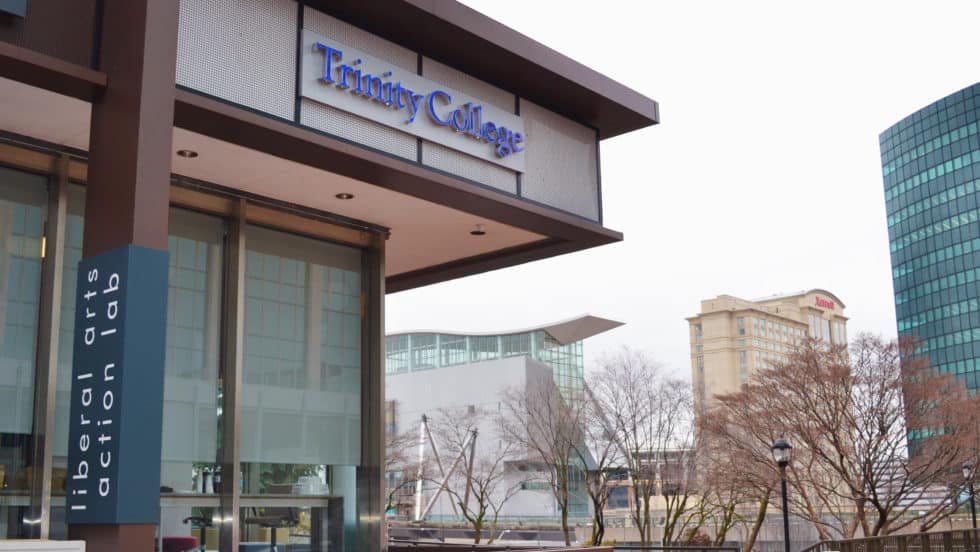
In the Liberal Arts Action Lab, Hartford community partners define problems facing the city, and collaborate with teams of students and faculty to research and publicly share possible solutions. The Action Lab is an educational partnership between Capital Community College and Trinity College in Hartford, the capital city of Connecticut.
Learn More
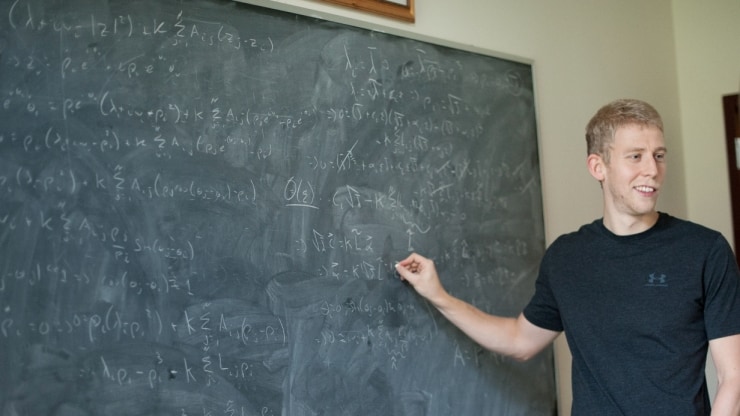
The mathematics major is designed around a core of required courses that provides a strong foundation in both computational and theoretical mathematics as well as electives from both pure and applied mathematics.
Learn More
This minor provides an opportunity to study the development of European civilization from the late Roman Empire to the 17th century.
Learn More
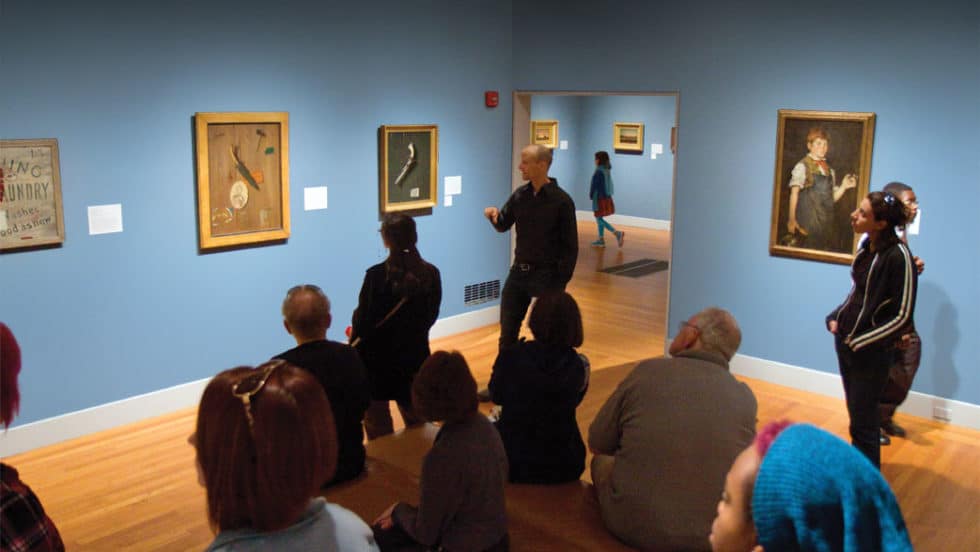
The American Studies graduate program offers a certificate in Museums and Communities. Students may earn a certificate independent of, or as part of, the Master's Degree program.
Learn More
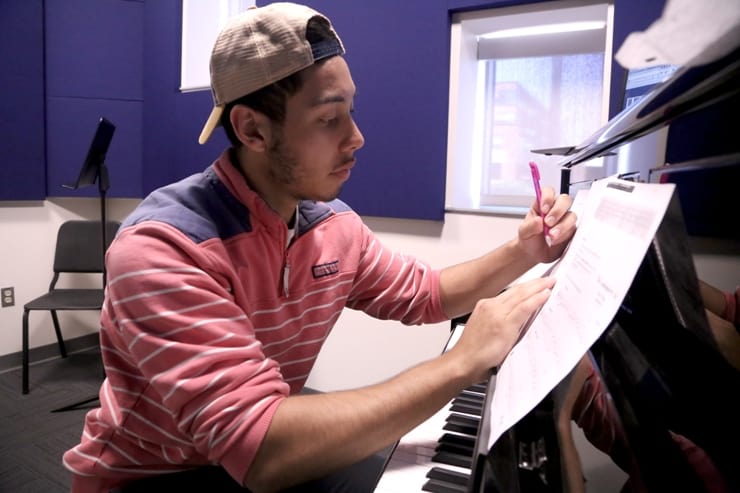
Trinity College's Music Department is a place to create, perform, practice, and intensely study music. A place where the serious exploration of music is matched by a commitment to high artistic standards, and a dedication to develop the unique talents of each individual student.
Learn More
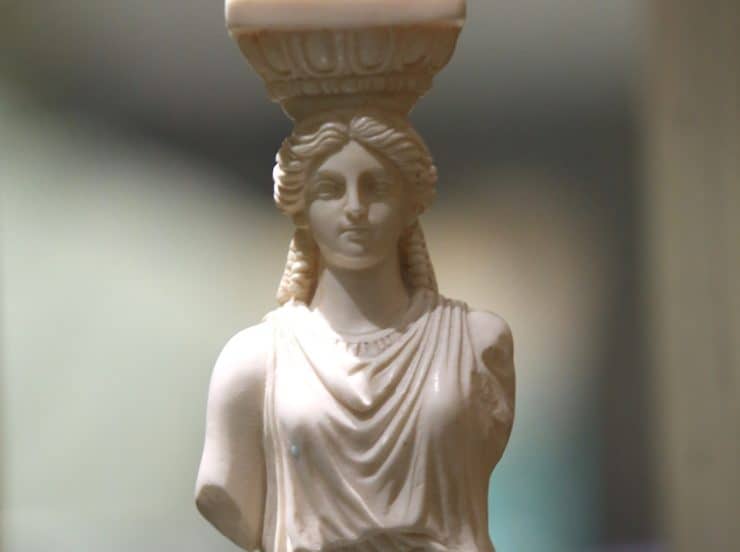
The mythology minor is designed to acquaint students with myths from various cultures of the world.
Learn More
Socrates once said, "I am a lover of divisions and collections," and that is a good brief summary of what it means to be able to think critically and imaginatively: to analyze ("divide") arguments for their soundness and validity, and to synthesize ("collect") them into a more comprehensive understanding of the issues at hand. That ability is something Trinity's philosophy majors all master in time. Upon graduation, they take with them more than a diploma. They take with them a skill critical to the success of most endeavors.
Learn More
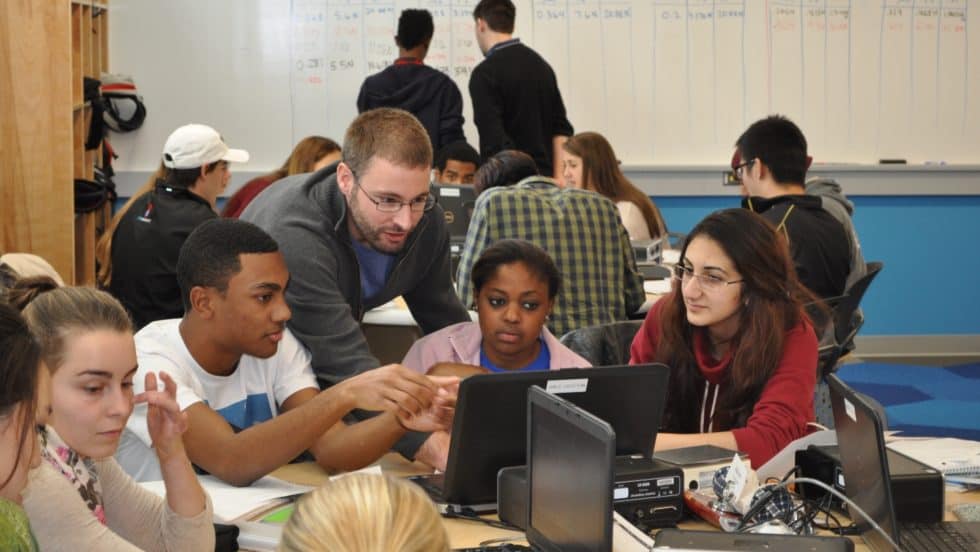
Physics is a wide-ranging and fundamental science that asks deep questions about the nature of the physical world. Physicists seek to understand the origin of the universe, the properties of black holes, and how elementary particles interact to form matter.
Learn More
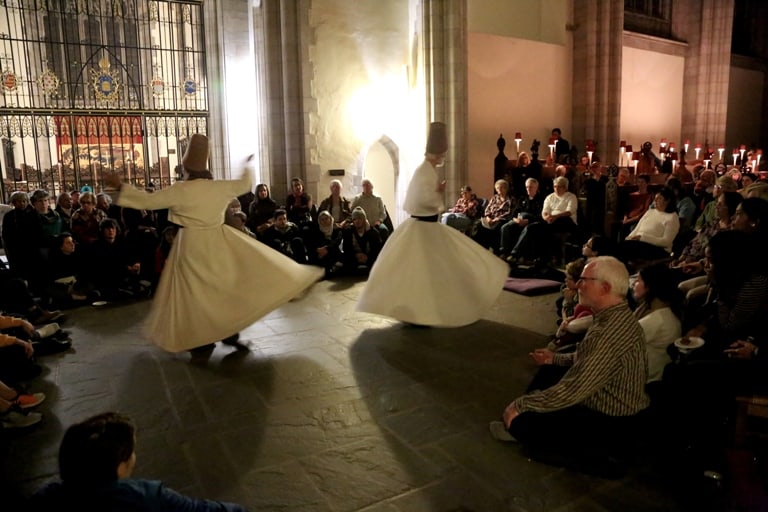
As a student of religion at Trinity, you learn to develop and exercise a respectful and open attitude toward a variety of beliefs and practices among the peoples of the world.
Learn More
Among the many reasons to study Russian at Trinity are our outstanding and accessible faculty members, a wide range of courses across disciplines, and a custom-designed semester of study in Moscow.
Learn More

Trinity's Studio Arts Program offers a rich and diverse studio art curriculum within a liberal arts environment. Studio Arts majors receive the training and inspiration necessary to enhance their future educational and professional endeavors.
Learn More
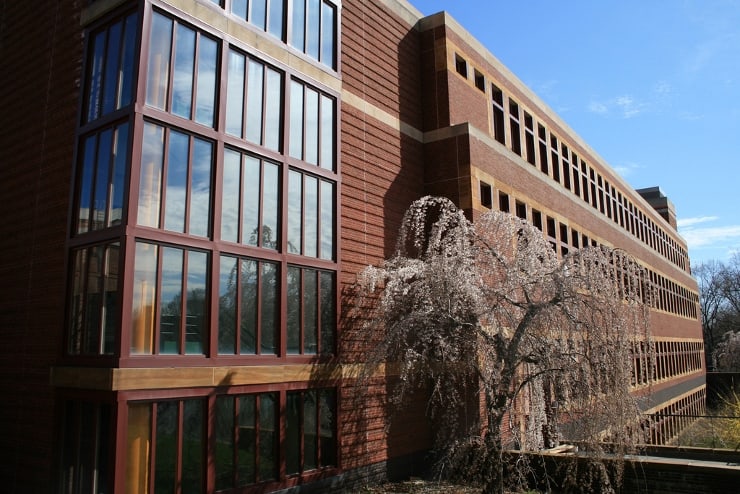
The Aetna Quantitative Center holds tutoring hours most afternoons and evenings, when students may find help from peer tutors for calculus, statistics, college algebra, as well as other math-related courses. We work collaboratively with the Mathematics Department to provide support for Trinity students enrolled in mathematics courses as well as a full-semester QLIT 101 course taught by Quantitative Center Faculty for those students required to take it.
Learn More
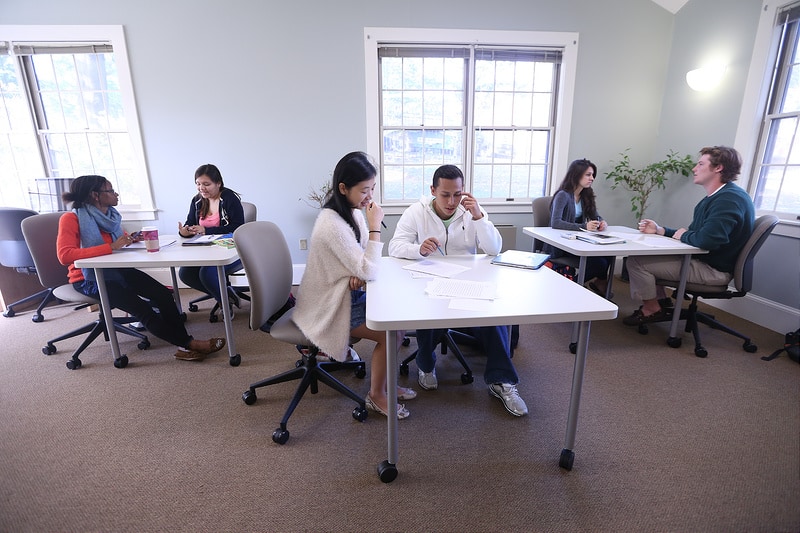
The Allan K. Smith Center for Writing and Rhetoric offers the Interdisciplinary Minor in Rhetoric, Writing, and Media Studies and writing courses taught by rhetoric and composition faculty, administers Trinity's Writing Foundational Requirement, provides support services and special programs for students, faculty, and the community as well as assesses and promotes writing at Trinity College. The Allan K. Smith Center for Writing and Rhetoric also houses the Writing Center where tutors help students perfect their writing skills.
Learn More
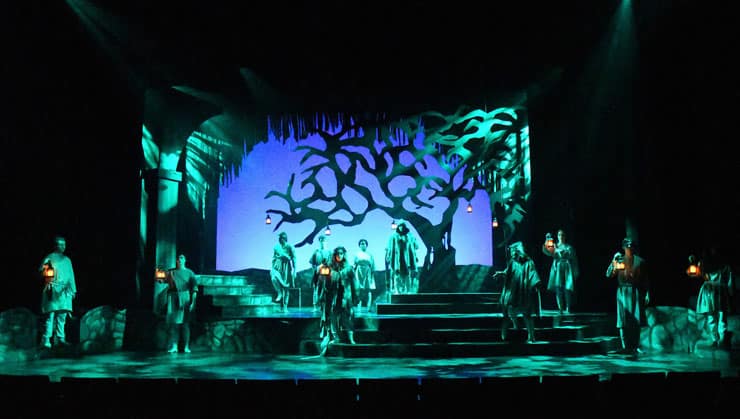
The Department of Theater and Dance is committed to engaging students in creative practice and scholarly study across the disciplines of theater and dance. Majors choose from one of six concentrations: Acting, Dance and Choreography, Media and Performance, History and Dramaturgy, Performing Arts in the Community, and Writing and Directing. In addition to participating in departmental productions, students have the ability to study at the Trinity/La MaMa Performing Arts Program in New York City.
Learn More

Library & Information Technology Services promotes excellence and innovation in teaching, learning, and research by developing, preserving and providing access to collections and resources that sustain instruction and scholarship. We partner with faculty in the critical and imaginative use of library collections, instructional technology, and wider information resources.
Learn More
The Trinity Institute for Interdisciplinary Studies (TIIS) provides support for faculty as intellectuals: to exchange ideas, discuss books, critique each other's works-in-progress, and invite scholars to campus to engage in ongoing discussions. TIIS sponsors workshops, faculty reading groups, a manuscript fellowship program, and a junior faculty research fellowship.
Learn More
The mission of urban educational initiatives is to connect faculty, staff, and students with people that learn, work, and live in the city of Hartford, CT. These initiatives span various academic departments and offices. Initiatives can be a one-time collaboration or an ongoing partnership with a school or local organization.
Learn More
In the World Literature & Culture Studies track, students major broadly in literary studies, and may draw upon a wide range of courses on literature and culture in translation.
Learn More
Source: https://www.trincoll.edu/
Post a Comment for "Continuing Education Classes University of Hartford"